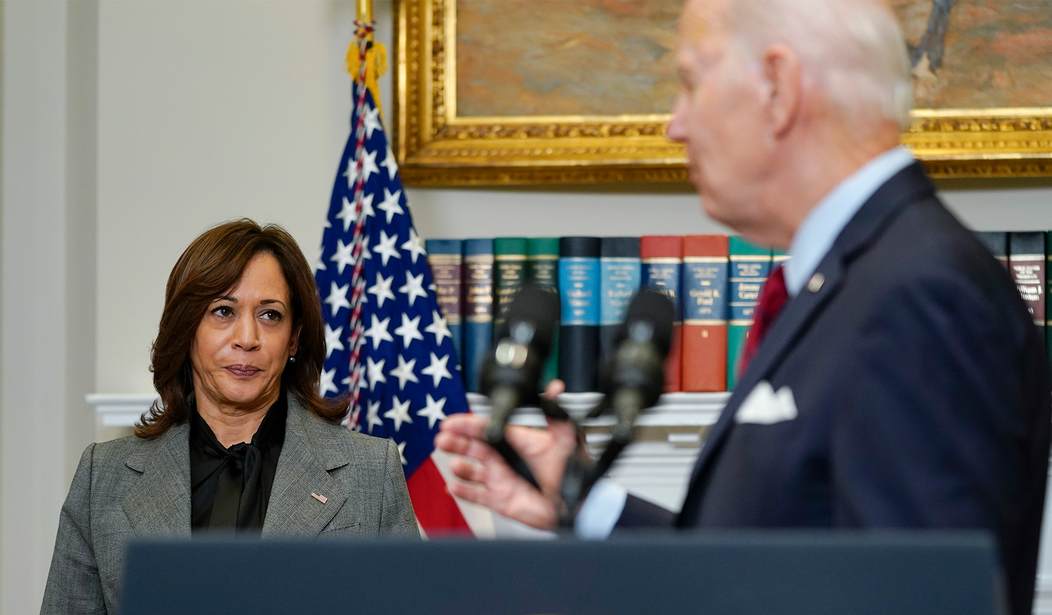The torch has officially been passed from Joe Biden to Kamala Harris in Chicago, but not much will change on the Democratic policy platform. Recent proposals reveal both politicians are in lockstep believing the federal government knows how best to manage the operations of the private sector.
It's a policy direction that should send a chill up the spine of the country’s small businesses.
Last week, Harris proposed a broad plan to ban “corporate price-gouging in the food and grocery industries.” The government price control stunt is intended to provide voters with the appearance that Harris is going on the offensive to fight high consumer prices. On average, costs are up 20 percent compared to when Harris’ tenure as vice president began.
But Americans—Democrats and Republicans—should be skeptical. The policy agenda of the Biden-Harris administration, notably out-of-control government spending and efforts to undermine domestic energy production, helped to create this inflationary mess to begin with. And manipulating the free market via government price controls never ends well.
As a columnist at The Washington Post reacting to the Harris proposal put it, “it’s hard to exaggerate how bad this policy is.” Price controls inevitably result in shortages as businesses are financially compelled not to engage in the market. It’s a dynamic that will first hit the small business community, which has the least amount of budgetary wiggle room.
Meanwhile, earlier this month, the Biden-Harris administration unveiled another regulatory scheme that will put small businesses in the crosshairs of government bureaucrats.
Rather than making moves to prioritize Americans suffering under high gas and rent prices, the administration is focused on nitpicking the process for canceling a magazine subscription or gym membership. Under the new rules, the customer service platforms of businesses ranging from community pharmacies to airlines will be micromanaged.
Recommended
Why? Because apparently, the ease of canceling a Netflix subscription is more important than pursuing policies that will bring down the cost of living.
The proposal is beyond silly. The federal government is not needed to ensure “accountability for companies that provide bad service,” as the White House website puts it. The mechanism already exists. It’s called free market competition. If customers are unhappy with a product or service, alternatives are abundant.
The federal government is the last entity that should be policing the interactions that businesses have with consumers. Not only does it likely extend beyond the purview of executive authority but Uncle Sam’s track record with administering its own services is problematic at best.
The botched rollout of Obamacare’s patient platform in 2013 or the Internal Revenue Service’s persistently poor customer service marks are prime examples. Perhaps federal officials should get their own house in order before targeting private industry.
The new spool of government red tape will predictably come back to bite small businesses and American families struggling to make ends meet. Additional staffing, rebuilding consumer-facing systems, or restructuring processes all come with a price tag. And extra compliance costs associated with the regulations will roll downhill to consumers.
It’s a domino effect that Biden and Harris should be familiar with.
One report released in May from my organization, the Job Creators Network, estimates new regulations finalized under the Biden-Harris administration will cost taxpayers—businesses and individuals—an additional $1.6 trillion. Another analysis from the American Action Forum pegs the price tag at nearly $1.4 trillion.
Both Biden and Harris share a belief that government intervention via price controls and regulations is needed to keep businesses in check. But that doctrine couldn’t be further from the truth. Rather than playing the blame game, Joe Biden and Kamala Harris should look into the mirror to see why consumers are feeling economic pain.
Elaine Parker is the President of the Job Creators Network Foundation.
























Join the conversation as a VIP Member